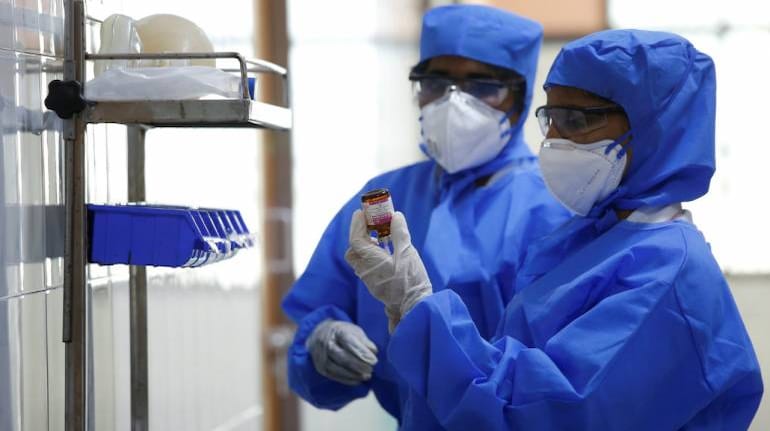



In the prolonged battle against the highly contagious coronavirus, personal protective equipment (PPE) is keeping doctors, healthcare workers and other frontline staff safe.
But, PPE is doing more than that. It has saved several business-to-business (B2B) supply startups as their regular customers--steel, automobiles, mining and FMCG sectors–ground to a halt because of the nationwide lockdown.
For many of these startups, business has never been so good. They are flooded with orders for masks, gloves, goggles, gowns, face shields, aprons and full-body isolation suits, as the nationwide lockdown disrupts traditional supply chains.
“Spends on protective equipment have gone up by 100 times over the last couple of months. Mask is one such product, demand for which jumped. We have also delivered a few hundred thousand PPE over the last four weeks,” Moglix CEO Rahul Garg said.
Players like Moglix, Industrybuying.com and BulkMRO have been procuring and supplying PPE to hospitals, state governments and local administrations.
“We are getting orders from governments, clinics, hospitals, non-profits from across the country,” BulkMRO cofounder Gaurang Shah said. “We have already fulfilled around two to three crore orders over the last 25 days, mostly sourced products from Southeast Asia.”
Masks, gloves, shield and gowns offer protection from infected droplets discharged during coughing and sneezing that spread coronavirus. The virus causes respiratory distress and in case of severe infections, ventilators help patients breathe.
Follow LIVE updates on the COVID-19 pandemic here
The order flood
Mumbai-based BulkMRO is a Y Combinator-backed startup that began operations in 2015.
In the pre-coronavirus world, the platform worked as an aggregator for more than 15 lakh industrial products across 5,000 brands. It sourced goods from 24 countries and sold in 12 countries West Asia, Japan, North America and others. At present, it is sourcing PPE from local manufacturers.
Singapore and Noida headquartered Moglix has also seen a big jump in demand for PPE.
Industries and businesses used to spend little on these products but had ramped up procurement, the company said. Online demand has shot through the roof as lockdown has disrupted on ground supply.
With equipment such as mask meant for one-time use, there are repeat orders from hospitals that are treating COVID-19 cases. Garg said an N95 masks can be used four times before being discarded, but a drill had to be followed to disinfect it.
“Each of these kits cost between Rs 800 to Rs 1,000, millions of such kits are being procured, which means monthly authorities are spending up to Rs 100 crore, this is unviable. India needs low-cost solutions,” said Garg.
Moglix is sourcing most of PPE from local manufacturers and the buyers are a mix of medical colleges, hospitals and government departments and even corporates, which are donating this equipment.
The company, backed by marquee investors such as Accel Partners India, Sequoia Capital, and Tiger Global, has raised north of $100 million through multiple rounds.
In a slowing market, PPE has been a life-saver. Even ecommerce players are not being allowed to ship any product other than “essential items”.
“We are going to have one of the best months (for business) because of the heightened demand for PPE on our platform,” said Swati Gupta, co-founder, Industrybuying.com
Industry insiders say small and medium businesses rely on relationships with suppliers which have been built over the years, a trend seen across sectors. Though business opportunity was always there, online players found it difficult to replace traditional suppliers. The viral outbreak has been their break out moment.
The organised supply-chain networks are five to 10 times more efficient than unorganised ones, Garg said. But with the lockdown, even offline organised chains are struggling to move goods and online platforms are getting most of the business.
Gupta from Industrybuying said an all-India presence helped online players. Their supplier base is spread out--even if one area was locked down, some industrial activity was happening in another.
“We have well-established delivery chains, further at a time when offline shops are shut, businesses come for product discovery to online platforms,” said Gupta.
The lockdown ends on May 3, though infections have continued to rise. India has, so far, reported 33,050 cases and 1,074 deaths. Punjab on April 29 extended the lockdown the third time by two weeks and some states could follow its lead.
Whatever the status of lockdown, the demand for PPE is unlikely to ebb in the coming weeks, if not months, and orders will continue to flow for these B2B startups.

Discover the latest Business News, Sensex, and Nifty updates. Obtain Personal Finance insights, tax queries, and expert opinions on Moneycontrol or download the Moneycontrol App to stay updated!